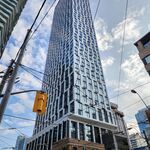wyliepoon
Senior Member
http://www.thestar.com/News/GTA/article/609796
CITY OF THE PEOPLE: SPADINA EXPRESSWAY
TheStar.com | GTA | How downtown slew the 'beast'
How downtown slew the 'beast'
Compiled by Star Library
Sources: Media files, Sherwood Park Residents' Association, City of Toronto Archives
Residents rose up, fought to have a say in plans for their city
Mar 28, 2009 04:30 AM
Noor Javed
STAFF REPORTER
To mark Toronto's 175th birthday, the Saturday Star is presenting turning points in the city's history. Those who say Torontonians are passive only need to look at the battles citizens have waged against the city, politicians and developers to have a say in how their neighbourhoods are shaped.
They stopped a highway.
They rallied, they lobbied and used their democratic power to vote in the change they desired. And in a few years, residents of downtown Toronto derailed a transportation plan that would have changed the face of their city.
According to Metro Toronto's official 1966 transportation plan, the Spadina Expressway was to run through Forest Hill, graze the outskirts of Casa Loma, and divide the Annex – serving as a passage way between North York and downtown Toronto.
Residents were told they would have the best of both worlds when it was built: the attractions of the city, with the accessibility of a suburb. It was a persuasive sales pitch, but downtown residents didn't buy it.
The transportation plan was created over two decades and politicians and city planners considered it the blueprint for urban regeneration in Toronto.
Spurred by the growth of Toronto's first suburb, Don Mills, and the reality that the city was growing, planners drew an extensive network of criss-crossing streets, inner-city expressways, and highways along the perimeter to make the city core more accessible from the suburbs.
"This just was just the beginning of a bigger plan," said Councillor Adam Vaughan (Trinity-Spadina), whose father, Colin, was a leader in the Stop Spadina movement.
That plan would eventually include the Don Valley Parkway, Gardiner Expressway and a network of highways that were never built.
"There was going to be six inner-city expressways (that) would plunge into the middle of the city and ring the downtown core," Vaughan said. "But to build that, you had to build the spine of the beast, and that was Spadina."
As construction began in 1967, opposition began to mount. Much of it was personal. "This road was going to destroy thousands of homes," said John Sewell, a politician who became part of the movement, and went on to serve as mayor of Toronto for two years.
But some of the resistance was philosophical. "It was the urban-thinking backlash to suburban thinking," said Matthew Blackett, publisher of Toronto-based Spacing magazine. "A lot of people downtown didn't want to become the suburbs."
The suburbs couldn't understand why. Those living in the outskirts saw the expressway as a means to ease traffic congestion in the city, and threw their support behind Metro Council, even launching a Go Spadina campaign to counteract the anti-highway movement brewing downtown.
As the land was cleared between Lawrence and Eglinton Aves., residents in the path of the highway began to see what was coming. Houses were demolished, streets removed, and a park divided into two – turning once vibrant neighbourhoods into a muddy ditch.
"Here were these communities that had been around forever, that all of the sudden were being destroyed," said Vaughan.
Out of such concern, arose a movement that began with university students in the Annex, who were determined to do whatever they could to kill the growing "beast." Their cause was taken over by the middle class, gained the support of urban visionaries like Jane Jacobs and Marshall McLuhan, and eventually ballooned into the most important issue in the municipal election of 1969.
"They did the research, they lobbied properly," said Blackett. They held rallies and eventually voted in like-minded politicians. "It was an intellectual debate about city building, and not just an emotional knee-jerk reaction."
Eventually, they won. In 1971, premier Bill Davis killed the expressway.
"This was the most transformative moment in the city's history," said Vaughan.
Metro Council was forced to return to the planning board to revise the 1966 transportation plan, which would eventually eliminate the idea of expressways in the city's core.
"Citizens rose up and said you can't have a conversation about the future of Toronto, if we aren't at the table," said Vaughan.
CITY OF THE PEOPLE: SPADINA EXPRESSWAY
TheStar.com | GTA | How downtown slew the 'beast'
How downtown slew the 'beast'
Compiled by Star Library
Sources: Media files, Sherwood Park Residents' Association, City of Toronto Archives
Residents rose up, fought to have a say in plans for their city
Mar 28, 2009 04:30 AM
Noor Javed
STAFF REPORTER
To mark Toronto's 175th birthday, the Saturday Star is presenting turning points in the city's history. Those who say Torontonians are passive only need to look at the battles citizens have waged against the city, politicians and developers to have a say in how their neighbourhoods are shaped.
They stopped a highway.
They rallied, they lobbied and used their democratic power to vote in the change they desired. And in a few years, residents of downtown Toronto derailed a transportation plan that would have changed the face of their city.
According to Metro Toronto's official 1966 transportation plan, the Spadina Expressway was to run through Forest Hill, graze the outskirts of Casa Loma, and divide the Annex – serving as a passage way between North York and downtown Toronto.
Residents were told they would have the best of both worlds when it was built: the attractions of the city, with the accessibility of a suburb. It was a persuasive sales pitch, but downtown residents didn't buy it.
The transportation plan was created over two decades and politicians and city planners considered it the blueprint for urban regeneration in Toronto.
Spurred by the growth of Toronto's first suburb, Don Mills, and the reality that the city was growing, planners drew an extensive network of criss-crossing streets, inner-city expressways, and highways along the perimeter to make the city core more accessible from the suburbs.
"This just was just the beginning of a bigger plan," said Councillor Adam Vaughan (Trinity-Spadina), whose father, Colin, was a leader in the Stop Spadina movement.
That plan would eventually include the Don Valley Parkway, Gardiner Expressway and a network of highways that were never built.
"There was going to be six inner-city expressways (that) would plunge into the middle of the city and ring the downtown core," Vaughan said. "But to build that, you had to build the spine of the beast, and that was Spadina."
As construction began in 1967, opposition began to mount. Much of it was personal. "This road was going to destroy thousands of homes," said John Sewell, a politician who became part of the movement, and went on to serve as mayor of Toronto for two years.
But some of the resistance was philosophical. "It was the urban-thinking backlash to suburban thinking," said Matthew Blackett, publisher of Toronto-based Spacing magazine. "A lot of people downtown didn't want to become the suburbs."
The suburbs couldn't understand why. Those living in the outskirts saw the expressway as a means to ease traffic congestion in the city, and threw their support behind Metro Council, even launching a Go Spadina campaign to counteract the anti-highway movement brewing downtown.
As the land was cleared between Lawrence and Eglinton Aves., residents in the path of the highway began to see what was coming. Houses were demolished, streets removed, and a park divided into two – turning once vibrant neighbourhoods into a muddy ditch.
"Here were these communities that had been around forever, that all of the sudden were being destroyed," said Vaughan.
Out of such concern, arose a movement that began with university students in the Annex, who were determined to do whatever they could to kill the growing "beast." Their cause was taken over by the middle class, gained the support of urban visionaries like Jane Jacobs and Marshall McLuhan, and eventually ballooned into the most important issue in the municipal election of 1969.
"They did the research, they lobbied properly," said Blackett. They held rallies and eventually voted in like-minded politicians. "It was an intellectual debate about city building, and not just an emotional knee-jerk reaction."
Eventually, they won. In 1971, premier Bill Davis killed the expressway.
"This was the most transformative moment in the city's history," said Vaughan.
Metro Council was forced to return to the planning board to revise the 1966 transportation plan, which would eventually eliminate the idea of expressways in the city's core.
"Citizens rose up and said you can't have a conversation about the future of Toronto, if we aren't at the table," said Vaughan.




